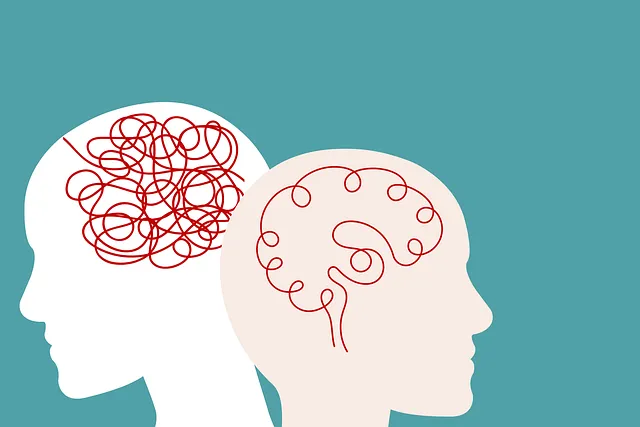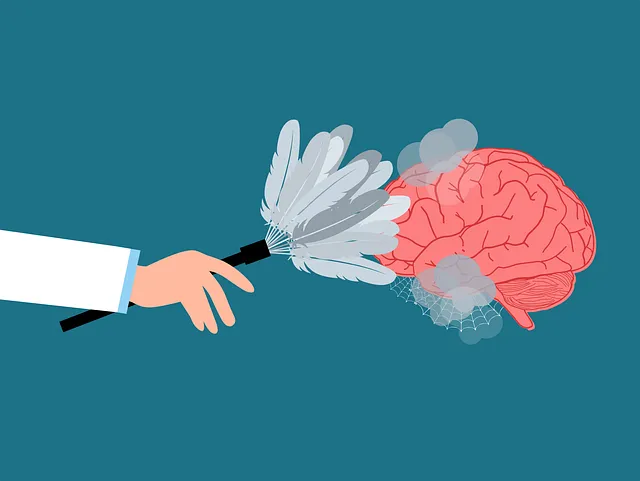Stigma severely impairs access to mental health support, but organizations like Kaiser Permanente are leading the charge in combating this issue through comprehensive programs. They offer trained professionals, evidence-based treatments, inner strength development, and stress management techniques, reducing stigma and promoting mental wellness. By integrating initiatives like Mindfulness Meditation and Mental Health Policy Advocacy, Kaiser Permanente creates a supportive environment where individuals feel empowered to prioritize their mental health, ultimately aiming for a more inclusive society that values those with mental health challenges.
Mental illness stigma remains a significant barrier to accessing quality care, impacting millions worldwide. This article explores effective strategies to reduce this harmful societal construct, focusing on Kaiser Permanente’s innovative approach to fostering inclusivity and understanding. We delve into their comprehensive mental health services, which prioritize destigmatization through education, awareness campaigns, and inclusive practices. By examining these methods, we can catalyse positive change, ensuring better support for those facing mental health challenges and promoting superior Kaiser Permanente mental health services.
- Understanding the Impact of Stigma on Mental Health
- Kaiser Permanente's Approach to Reducing Stigma
- Strategies for Effective Stigma Reduction in Mental Health Care
Understanding the Impact of Stigma on Mental Health

The impact of stigma on mental health cannot be overstated. It’s a barrier that prevents many individuals from seeking the help they need and deserve. When someone struggles with a mental illness, the added weight of societal judgment and discrimination can exacerbate their symptoms and hinder their progress towards recovery. This is where organizations like Kaiser Permanente play a crucial role by offering superior mental health services designed to combat these negative perceptions. Their comprehensive approach includes access to trained professionals, evidence-based treatments, and programs focused on inner strength development and stress management – all aimed at fostering mental wellness and reducing the stigma surrounding mental illness.
The consequences of stigma are far-reaching, affecting not only individuals but also their families and communities. It perpetuates a cycle where those suffering from mental health issues may feel isolated, ashamed, and afraid to share their experiences, hindering their ability to access care. By promoting understanding and compassion through education and awareness campaigns, Kaiser Permanente is at the forefront of efforts to break down these barriers. Through these initiatives, they’re not only providing superior mental health services but also contributing significantly to the overall reduction of stigma, empowering individuals to embrace their inner strength and prioritize their mental wellness.
Kaiser Permanente's Approach to Reducing Stigma

Kaiser Permanente has pioneered a comprehensive approach to reducing mental illness stigma within its healthcare system. Recognizing that stigma often prevents individuals from seeking help, Kaiser Permanente aims to create a supportive environment where patients feel comfortable accessing mental health services. They achieve this through various initiatives focused on education and awareness.
The organization emphasizes the importance of integrating evidence-based practices such as Mindfulness Meditation, Conflict Resolution Techniques, and Self-Awareness Exercises into their treatment plans. By fostering understanding and empathy among healthcare providers and the general public, Kaiser Permanente strives to dispel myths surrounding mental health issues. Their efforts prioritize promoting a culture of care and compassion, ensuring that superior Kaiser Permanente mental health services are accessible and perceived positively by all.
Strategies for Effective Stigma Reduction in Mental Health Care

Stigma reduction is a multifaceted approach that requires collaboration between healthcare providers, policymakers, and the broader community. Superior Kaiser Permanente mental health services emphasize Mind Over Matter Principles, focusing on evidence-based practices that empower individuals to manage their mental well-being effectively. Through tailored interventions, these services promote understanding and self-acceptance, fostering an environment where seeking support is normalized.
In addition to these clinical strategies, Mental Health Policy Analysis and Advocacy plays a crucial role in stigma reduction. By examining existing policies and advocating for changes that prioritize emotional healing processes, communities can create systemic shifts. This includes increasing access to mental health resources, ensuring cultural sensitivity in care delivery, and promoting education initiatives that dispel myths surrounding mental illness. Such efforts collectively contribute to a more inclusive society where individuals with mental health challenges are supported and valued.
Mental illness stigma reduction is a multifaceted effort that requires both individual and societal change. By understanding the profound impact of stigma on mental health, we can appreciate the significance of initiatives like Kaiser Permanente’s approach, which offers superior Kaiser Permanente mental health services aimed at destigmatization. Implementing effective strategies, such as education, early intervention, and supportive environments, is crucial in fostering a more inclusive society where individuals with mental health conditions can receive the care they need without fear of judgment. Together, these efforts can lead to improved outcomes and enhanced well-being for those facing mental health challenges.






